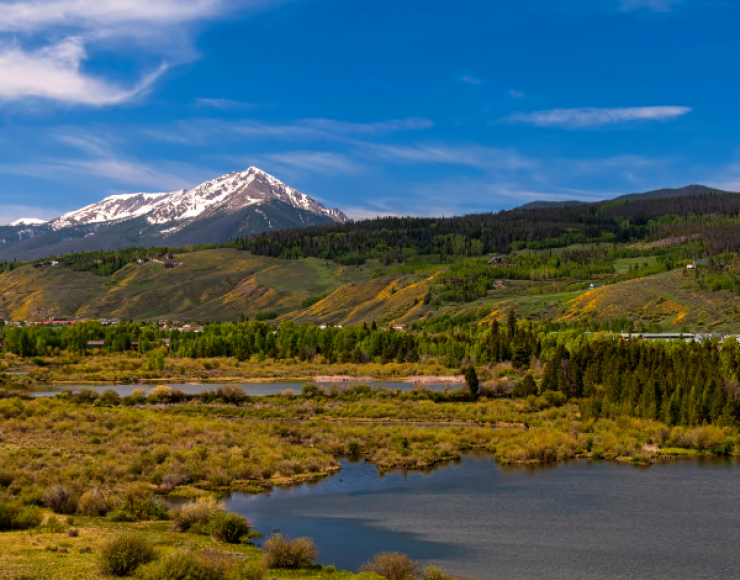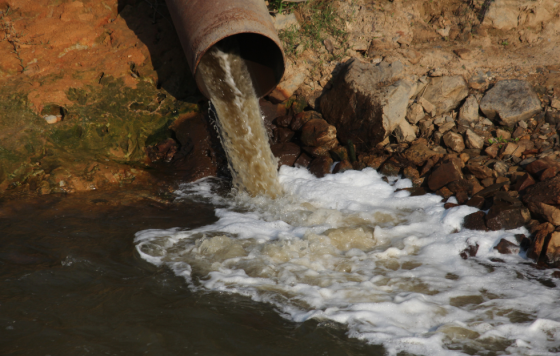
Sackett v. EPA
One year ago, on May 25, 2023, the U.S. Supreme Court issued its decision in the case of Sackett v. EPA. This decision narrowed the scope of the Clean Water Act by removing protections from most wetlands and streams in the United States. Since then, filling the gap from the loss of these federal protections has fallen largely on individual states. While some states have made efforts to weaken protections even further, Colorado is leading the way in strengthening wetland and stream protections at the state level.
Here’s an update from Colorado:
Earlier this month, Colorado became the first state in the nation to pass legislation restoring protections to wetlands and streams that were put at risk after the devastating U.S. Supreme Court decision removed Clean Water Act protections for these important waters.
On May 6th, the Colorado General Assembly passed House Bill 24-1379, which requires the Water Quality Control Commission to establish rules for the creation of a state dredge and fill permitting program by December 31, 2025. The program will be run by the Water Quality Control Division, which already administers Clean Water Act wastewater discharge permits in Colorado.
Bill highlights include:
- Adds wetlands to the definition of state waters to make it clear they are protected.
- Requires the state program to be at least as protective as the existing Clean Water Act section 404 permitting program.
- Allows flexibility to address Colorado specific permitting needs and to strengthen rules as needed should they fall short of protecting state waters
- Requires compensatory mitigation for projects impacting more than 1/10 of an acre of wetlands or 3/100 of an acre of streambeds. Mitigation must compensate for all functions of state waters that will be lost as a result of the permitted activity.
Protecting wetlands and streams is essential to securing Colorado’s drinking water supplies—they play a key role in safeguarding water supplies in all nine of Colorado’s major river basins, including the headwaters of South Platte, Arkansas, and Colorado rivers, which are vital sources of drinking water for millions of people. Streams and wetlands filter nutrients, heavy metals, and other pollutants before they enter downstream lakes, rivers, and streams, providing a critical ecological function in the form of reducing contaminants of concern for drinking water quality.
The passage of HB-1379 was a hard-fought victory for the Protect Colorado Waters Coalition. Members of the Coalition, including Clean Water Action, spent the past year advocating for a strong state program to protect wetlands and streams from mining, development, and other dredge and fill activities. We are grateful for the unwavering commitment of Speaker McCluskie, Senator Roberts, Representative McCormick, and Senator Kirkmeyer to safeguard Colorado’s precious water resources. We know this bill would not have passed without their leadership.
Developers, fossil fuel interests, and other industries in Colorado lobbied hard for the passage of a much weaker dredge and fill bill (Senate Bill 24-127), which would have left many wetlands and streams vulnerable to pollution and destruction and lacked clear requirements for compensatory mitigation. SB-127 would have also prohibited state regulations from being more protective than federal regulations–an especially dangerous provision as we face the threat of a possible second term of a pro-polluter Trump administration.
Governor Polis is expected to sign the bill into law sometime in the next few weeks. Clean Water Action and our allies will continue to advocate for strong protections for Colorado’s wetlands and streams as the Water Quality Control Commission conducts its rulemaking process to establish permitting requirements under the new program.
We hope that other states follow Colorado’s lead and pass their own legislation to protect vulnerable wetlands and streams. While this is a victory for clean water, Colorado’s waters are still not as protected as they were prior to the Sackett decision. Ultimately, we need the United States Congress to pass legislation to permanently restore protections to all waters and wetlands across the country.


